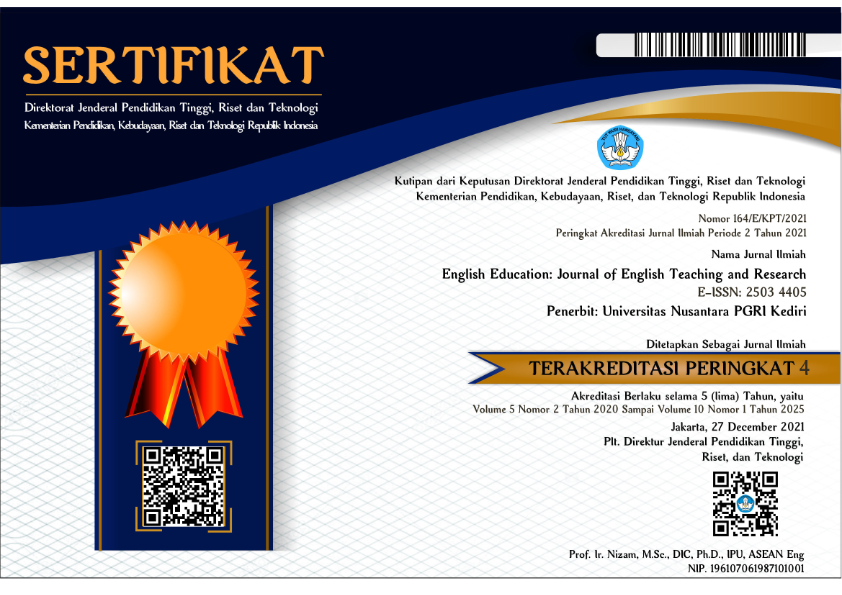Junior High School Students’ Perceptions on the Implementation of Montessori Approach in Vocabulary Learning
DOI:
https://doi.org/10.29407/jetar.v4i2.13662Abstract
Montessori approach is mostly used in the kindergarten and elementary school, especially in Indonesia. To explore the approach in the higher level of education, the research took place in a private Montessori Junior High School in Yogyakarta, Indonesia. This study is intended to investigate the students’ perceptions on the implementation of Montessori approach to improve their vocabulary due to the fact that vocabulary is central to language learning. The research participants are students in grades seven and eight. There were three research instruments in this study, namely observations, questionnaire, and Focus Group Discussion (FGD). Three different research instruments were used to make sure that the data obtained was valid. The researchers crosschecked the results from each instrument to triangulate data consistency. Based on the findings, the students have positive perceptions on the implementation of Montessori approach for vocabulary learning. The implementation of Montessori approach promotes its unique learning activities, teacher’s personal guidance, and students’ learning awareness, internal motivation, and interest. The students perceived that the implementation of Montessori approach can improve their vocabulary.
Downloads
Downloads
Published
Issue
Section
License
Authors who publish with this journal agree to the following terms:
- Copyright on any article is retained by the author(s).
- The author grants the journal, the right of first publication with the work simultaneously licensed under a Creative Commons Attribution License that allows others to share the work with an acknowledgment of the work’s authorship and initial publication in this journal.
- Authors are able to enter into separate, additional contractual arrangements for the non-exclusive distribution of the journal’s published version of the work (e.g., post it to an institutional repository or publish it in a book), with an acknowledgment of its initial publication in this journal.
- Authors are permitted and encouraged to post their work online (e.g., in institutional repositories or on their website) prior to and during the submission process, as it can lead to productive exchanges, as well as earlier and greater citation of published work.
- The article and any associated published material is distributed under the Creative Commons Attribution-ShareAlike 4.0 International License








 Article template
Article template



